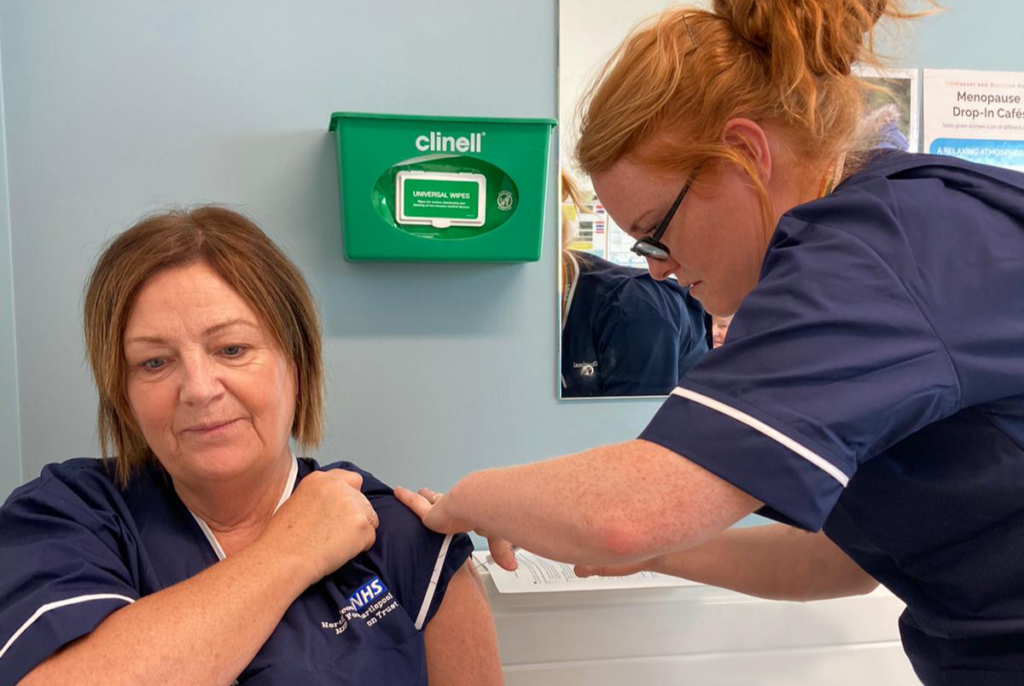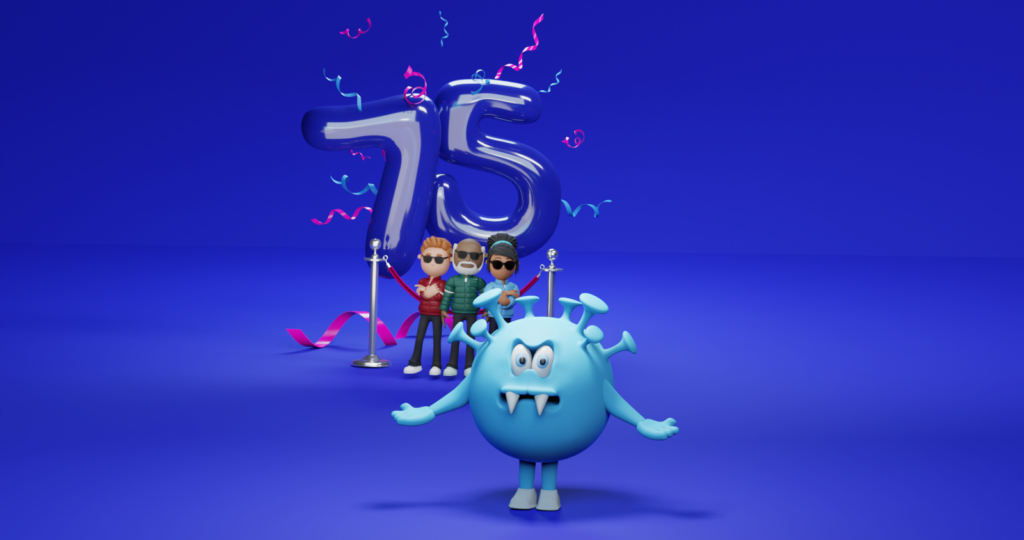
This year marks 75 years of the NHS. And we’re asking colleagues to help us celebrate by getting their staff flu vaccinations as soon as possible.
On this page
How to get your flu jab
If you have not been vaccinated, you can simply email: [email protected] to book your vaccination.
Book a session for your team
If you would like somebody to visit your area at a particular time/date to offer the flu jab then please email: [email protected].
Outside of the Trust
We know some staff need or prefer to have their vaccinations elsewhere, such as with your local GP.
If you’ve had your flu vaccination outside of the Trust, please let us know so we can update our records. Simply email [email protected] with the date you had the vaccine.
Why it is important to get your jab?
Working within healthcare, you are more susceptible to the flu virus and risk passing it on to your colleagues, your family and patients.
You can still be a flu carrier even if you have no symptoms and you have the best protection if you develop immunity before the flu virus starts circulating.
The most effective way to protect yourself from the flu every year is to have the flu jab.

FAQs

Flu myth buster
Some people remain reluctant to roll up their sleeves and decline the vaccination because they believe it will give them the flu or believe other misconceptions about the flu.
Hopefully by reading our myth-busting flu facts you will feel more informed and confident in getting your flu jab and staying well this winter.
The myth: Having the flu vaccine gives you flu
The facts: No, it doesn’t. The injected flu vaccine that is given to adults contains inactivated flu viruses, so it can’t give you the flu.
Your arm may feel a bit sore where you were injected, and some people get a slight temperature and aching muscles for a couple of days afterwards, but other reactions are very rare.
The myth: Once you’ve had the flu vaccine, you’re protected for life
The facts: No, you aren’t. The viruses that cause the flu can change every year, so you also need a vaccination each year that matches the new viruses.
The vaccine usually provides protection for the duration for the duration of the flu season that year.
The myth: If I missed having the flu jab in October it’s too late to have it now
The facts: No, it’s not too late. It is better to have the flu vaccine as soon as it becomes available, but it’s always worth getting vaccinated before the flu comes around.
Since we don’t know when the flu will strike, the sooner you have the vaccine the better.
The myth: I’m on antibiotics therefore I can’t have the flu vaccine
The facts: Yes, you can get a flu vaccine while on antibiotics.
The myth: The flu jab contains pork products
The facts: The flu jab does not contain any pork ingredient or gelatine and is ok for our Muslim colleagues to have.
The myth: I’ve had flu recently so I don’t need to be vaccinated
The facts: You need to have a flu jab even if you’ve already had flu recently.
Flu is caused by several viruses and the immunity your body has naturally developed after having flu will only protect against one of these strains.
Also, what you were laid low by might not necessarily have been flu.
The myth: Flu is just like having a heavy cold
The facts: While colds and flu share some similar symptoms (such as a blocked nose, sore throat, and high temperature), make no mistake – a bad bout of flu is much worse than a cold.
Colds cause more nasal problems than flu, while fever, fatigue and muscle aches are more likely and more severe with flu. If you get complications caused by the flu, you could become seriously ill.
Whereas cold symptoms normally develop over one or two days, flu symptoms come on suddenly and sometimes severely.
Cold sufferers usually begin to feel better after a couple of days while it takes around a week to recover from flu, although sufferers might feel tired for much longer.
The myth: I’m a health professional and I never get flu, so I don’t really need the vaccine
The facts: Vaccination isn’t just about keeping you safe and well, it’s about protecting those close to you – your colleagues and patients who may be more vulnerable to the effects of the virus. Just because you’ve not had flu before doesn’t mean you won’t get it this year.
The myth: The flu vaccine protects you straight away
The facts: It usually takes about 10 days for you to be protected against flu after you get jabbed so in theory, you could be vaccinated and then pick up the flu before you are fully protected.
That’s why it is best to get the vaccine as early as possible and before there are lots of flu viruses circulating.
The myth: flu vaccine will stop me from catching a cold
The facts: No, it won’t. The flu vaccine protects you again flu viruses. Colds are caused by other less serious viruses that are completely different from the flu.
You may well still get winter colds after getting the flu vaccine, but you’re much less likely to get flu itself. Flu is potentially a much more serious condition.
